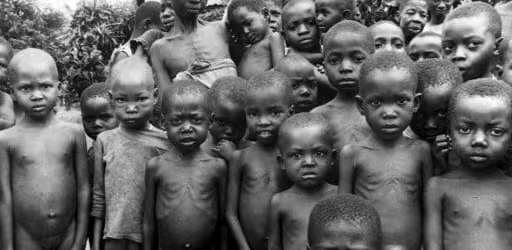Food as a Political Weapon: The New Global Hunger Strategy
Medium | 12.11.2025 22:29
Food as a Political Weapon: The New Global Hunger Strategy
5 min read
·
Just now
--
“The Hidden Hands That Decide Who Eats and Who Waits”
In the sun-scorched fields of East Africa, a mother bends over her child, counting the last grains of rice in a cracked clay bowl. She does not know that the scarcity she faces is not merely a consequence of drought or poor harvests. It is a reflection of strategy, policy, and the quiet calculus of power. Across continents, in government chambers and corporate boardrooms, the same grains that could feed thousands are weighed not just in kilos, but in political advantage. The world has learned to weaponize the very sustenance of life, turning food into leverage, leverage into influence, and influence into dominion.
This is not an abstract concept. It is measurable in the eyes of starving children, in the hollowed cheeks of the elderly, in the tension at refugee camps where lines stretch for miles, and in the whispers of farmers who sell what little they have, knowing someone, somewhere, will profit politically from their desperation. Food, which once symbolized culture, community, and care, has become a tool of coercion. Nations manipulate exports, withhold aid, impose tariffs, and intervene selectively, using famine as an instrument to bend others to their will.
Consider Yemen, where the conflict is fueled not only by guns but by the blockade of essential supplies. Aid convoys halted, ports closed, and the innocent caught in the crossfire are left to starve. Or Syria, where droughts worsened by climate change compounded by civil conflict have transformed fertile lands into deserts of hunger. These are not just tragedies; they are lessons in the terrifying efficiency of hunger as a strategic weapon. The hunger is deliberate, even if not always consciously orchestrated, because power in geopolitics often grows out of scarcity. Whoever controls food can influence compliance, loyalty, and allegiance.
It is tempting to believe that international organizations, non-profits, and global coalitions can offset these realities. They try. But the machinery of hunger is larger, older, and more intricate than any single organization can dismantle. Strategic reserves are hoarded, subsidies are manipulated, and food aid is packaged as conditional relief. The politics of scarcity is invisible to the casual observer but brutally tangible to those living its reality. Wealthier nations, often with surplus, influence the destinies of poorer countries not only with loans and trade deals but with rice, wheat, and corn. Control the staples, and you control decisions, elections, and sometimes, entire populations.
This is not just a tale of foreign policy; it is deeply human. The grandmother in Bangladesh who trims her meal to spare her grandchildren from hunger. The father in Venezuela standing in line for hours, watching prices spike while the government negotiates aid on political terms. The farmer in India whose crop failure becomes a bargaining chip in larger trade disputes. Each story is a brushstroke painting the unseen hand of global power over the most intimate aspect of human survival.
There is a psychological weight to hunger that few other weapons carry. It is silent, creeping, and persistent. It erodes morale, shapes behavior, and forces choices no one should have to make. Hunger transforms communities, breaking social bonds and fostering dependency. And yet, even in despair, humans display a remarkable resilience. Families share morsels, neighbors pool resources, and small acts of kindness ripple outward as defiance against the cold arithmetic of political strategy.
One could argue that food has always had political dimensions. The Dutch East India Company, colonial administrators in Africa, or the British Raj’s famines pall instances where scarcity served agendas of control. But today, the dynamics are amplified and globalized. Modern supply chains, international markets, and instantaneous communication magnify the impact. A shipment delayed in the United States can reverberate across African markets, and a policy decision in Europe can determine which nation starves and which survives. In this sense, hunger is not a side effect of governance but sometimes its instrument.
Yet, amid these grim realities, there is a lesson about human ingenuity and moral obligation. Countries and organizations that resist using food as a lever demonstrate that power need not be predatory. Grassroots movements, local cooperatives, and digital campaigns have begun to challenge monopolies, redistribute surplus, and demand transparency. The choice to weaponize food is political; the choice to feed responsibly is ethical, strategic, and profoundly human.
What does this mean for ordinary citizens?
It is both a call to awareness and a challenge to empathy. Every packaged food item we consume, every global trade headline we skim, and every policy decision announced by our leaders may carry hidden consequences. Awareness becomes a form of agency, and conscience becomes a tool to resist manipulation. Hunger engineered as a weapon is not inevitable; it is a design, and designs can be altered.
Reading this, one cannot help but feel the tension between inevitability and choice, between suffering and resistance. Eyes may well up with frustration at the injustice, but they can also shine with recognition of human courage. The child who survives famine, the farmer who refuses to be subjugated by trade monopolies, and the communities that innovate in adversity.. all are testaments to the indomitable human spirit confronting a tool meant to subdue it.
Ultimately, understanding food as a political weapon forces a profound reflection: life, sustenance, and survival are entangled with power in ways we rarely perceive. Hunger is not merely a natural crisis; it is often a mirror held up to geopolitics, revealing the intentions, ambitions, and moral choices of those in power. By recognizing it, by analyzing it, and by acting upon that recognition, societies can reclaim control over the most fundamental resource. The grain in a bowl is never just a grain. It is leverage, influence, hope, and humanity.
In this age of global interconnection, where a loaf of bread or a sack of rice can ripple across continents, the stakes are immense. Food is life, and when life itself becomes political strategy, understanding, empathy, and ethical vigilance are not luxuries, they are necessities. Hunger engineered as a weapon may be invisible, but it leaves marks on every soul it touches. Awareness is the first step to dismantling the strategy, and compassion is the tool that makes that awareness meaningful.









